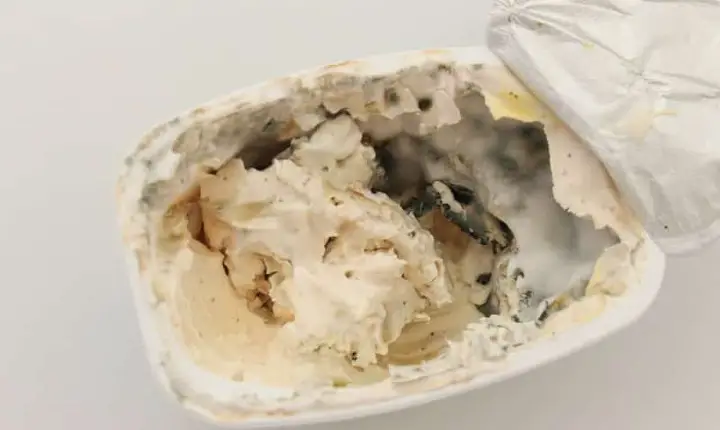Cream cheese has many uses. Its versatility is one of the reasons many people stock up on it or make large batches. However, just like any dairy product, it does not last forever.
After a while, you may observe that your cheese does not taste fresh. It may also smell funny and not look good. These are signs that it is going bad.
But, you don’t have to give up on making large batches or stocking up. All you need is the right information to help you avoid wasting precious cream cheese.
In this article, you’ll get to know the shelf life of this cheese, how to tell if it has gone bad, and how to store it properly.
What is cream cheese?
Cream cheese is a soft, smooth cheese with a mild flavor. It has a high-fat content (at least 10%) that makes it suitable for a variety of foods.
Cream cheeses are made from cream and cheese. These types of cheeses are made by blending cream with milk and acidifying agents to give it its signature tangy taste.
Cream cheeses traditionally come from cow’s milk, but some manufacturers also make them from goat’s milk or sheep’s milk.
While some people make their cream cheeses with milk from their farms, there are also several commercially produced cream cheeses such as the popular Philadelphia and Neufchatel brands.
Does cream cheese go bad?
The short answer is yes. However, it has a very long shelf life when stored properly. Bad cream cheese will have an off smell and taste sour or bitter.
This cheese contains a lot of moisture and fat which makes it go bad quickly, especially when you do not store it properly.
After opening its original packaging, the cheese should be kept in the fridge to maintain freshness for as long as possible.
What is the shelf life of cream cheese?
Unopened
The shelf life of unopened cream cheese depends on factors such as the best-by date, the preparation and storage methods.
The commercial varieties carry a “best-by” date which tells how long you can expect it to be of best quality.
After the best-by date, it may be fine for 3-4 weeks, depending on how the cheese was prepared and how you stored it.
Opened
According to the U.S. Department of Agriculture, opened cream cheese will last for about 1-2 weeks in the refrigerator. This applies to all brands of commercially produced cream cheese.
So, you must keep opened cheese in a cold fridge (about 35 to 40°F) and use it within two weeks.
You can also freeze your cheese. But this will slightly change its texture and flavor. The cheese becomes crumbly as it thaws instead of its original smoothness.
Can you eat expired cream cheese?
According to the USDA, all cheeses are safe to eat for up to four weeks after the printed date if stored properly.
The printed date does not imply the beginning of spoilage. It rather determines how long you can enjoy your cheese at its best quality. However, expired cheese is not the same as fresh cheese, in appearance, texture, and taste.
Also, in some cases, the cheese may show signs of spoilage even before its expiration date. Therefore, while you are watching out for the printed date, also look out for signs of spoilage.
How to tell if your cream cheese is bad

Look at the printed date
The most common way to tell if your cheese is bad is to look for the expiration date. However, it is not 100% reliable because, as said earlier, it doesn’t fully determine spoilage.
If your cheese is past its printed date but still looks good, you may still eat it. You can look for the other signs below.
Check for mold
Examine the color of the cheese as soon as you open the package. The color should be pure white or grayish-white, depending on the kind of cheese.
If you notice any green or brown patches on your cheese, throw it out immediately. This is a sign that mold is growing in your cheese, and eating mold can make you sick.
Look at the texture
Another way to tell your cheese has gone bad is to examine its texture. If cheese has gone bad, it will have a clumpy or grainy texture. Discard such cheese immediately.
Sniff it
Cream cheeses usually have a mild smell. It shouldn’t smell unusual if it hasn’t gone bad. If you detect an off odor, it is spoiled and should be discarded immediately.
How to preserve cream cheese
There are several ways to preserve this cheese. The best preservation method is to wrap it tightly in plastic wrap and aluminum foil.
Then, place the wrapped cheese in the refrigerator. This will keep the taste and texture almost perfect for a long time.
You can also freeze cream cheese in an airtight, freezer-safe container. The texture of the cheese may change slightly, but it will still be fine for cooking and baking. Just make sure you thaw it in the refrigerator before using it.
FAQs
How long does cream cheese last at room temperature?
To get the best of your cream cheese, do not leave it out at room temperature for more than two hours.
As a dairy product, the longer it sits out, the more likely it is to get contaminated with bacteria and go bad.
Can cream cheese go bad in the freezer?
Yes, it can. Prolonged freezing and improper storage are factors that can make your cheese go bad even while it is frozen.
Generally, cream cheese should not be frozen for more than two months. Also, you must ensure that the bag or container must be constantly kept airtight.
Can you refreeze cream cheese?
Although some people do this, it is not advisable. When frozen cream cheese thaws, it separates into a grainy mixture of water and cream. You won’t want to refreeze this and thaw it again.
While it is not harmful to your health, it doesn’t taste great.
Summary
Cream cheese will go bad despite its long shelf life. Products with high dairy and fat content do not keep well outside the refrigerator or freezer. Do not keep your cheese at room temperature for more than 2 hours.
The refrigerator is the best place to keep your cheese. If you must freeze it, do not thaw and refreeze. Also, use frozen cheese within two months to get the best of its quality.
Most importantly, watch out for signs of spoilage before you eat your cream cheese. Discard the cheese if you notice discoloration, mold growth, or off smell.
I recommend you check out this comparison of cream cheese and sour cream.
Thanks for reading.

